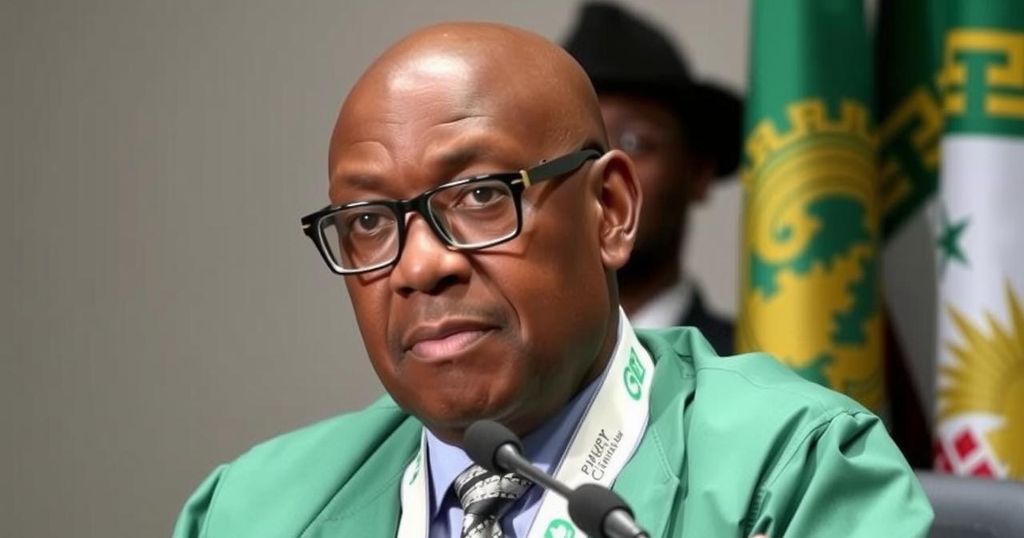A Sudanese minister has accused Chad of supporting paramilitary forces against the Sudanese army, calling for urgent action from the government. The minister alleges that Chad permits the transfer of military equipment from the UAE to the Rapid Support Forces. Accusations include Chad facilitating the flow of weapons intended to destabilize Sudan. The situation highlights rising tensions and geopolitical complexities in the region.
On January 3, 2025, a Sudanese minister publicly accused Chad of aiding paramilitary forces that are currently engaged in conflict with the Sudanese army, labeling the situation as “Chadian aggression.” Minerals Minister Mohamed Bashir Abunommo articulated these concerns in a Facebook post, urging the Sudanese leadership to respond decisively. He alleged that Chad is facilitating the transfer of military supplies to the Rapid Support Forces (RSF) from the United Arab Emirates, further exacerbating the ongoing violence in Sudan.
Minister Abunommo emphasized the necessity for a coordinated response among the ministers of foreign affairs, defense, culture, and information, stating that the intensification of aggression warrants urgent action. He expressed bewilderment at the congratulatory message from Chadian President Mahamat Idriss Déby to Sudan’s ruling council during Sudan’s National Day, questioning the motives behind it considering the conflicts at hand. Furthermore, he condemned Chad for allegedly allowing the flow of weapons into Sudan, asserting that such actions are part of a broader strategy aimed at destabilizing the region and establishing control over El Fasher with support from UAE.
The Sudanese Ministry of Defence had previously reported that the RSF utilized drones, purportedly obtained from the UAE, to conduct airstrikes in Sudan, with evidence suggesting that these operations originated from Chadian territory.
The backdrop to these accusations highlights the fraught relationship between Sudan and Chad amid ongoing regional conflicts, particularly the clashes involving the RSF. Following the dissolution of Sudan’s previous governance structures, tensions have escalated regarding territorial sovereignty and military allegiance, leading to further complexities in the geopolitical landscape in the area.
The current tensions between Sudan and Chad arise from a history of conflict and political instability within the region. Following the ousting of Sudan’s longtime leader, the power vacuum intensified internal struggles, prompting various factions, including the Rapid Support Forces, to vie for control. Chad, which has been historically linked with Sudan through familial and tribal ties, faces accusations of intervening in Sudan’s domestic affairs by allegedly supporting paramilitary forces. These developments have drawn in external powers, exemplified by military support from the United Arab Emirates, which plays a significant role in the regional arms dynamics.
In conclusion, the allegations posed by Sudanese Minister Mohamed Bashir Abunommo reflect a significant escalation in tensions between Sudan and Chad, centering on claims of military support for the Rapid Support Forces from Chad. The Sudanese government’s calls for coordinated action signal an urgent desire to confront and mitigate what is viewed as external aggression. The complexities of regional alliances and power plays underscore the precarious nature of peace and stability in Sudan and its neighboring states.
Original Source: sudantribune.com






